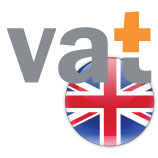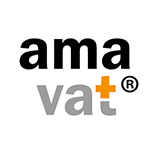The UK sets out post-Brexit cross-border tax plans

On the 9th October, 2017, the UK Government released a number of ‘white papers’, setting out how it will accomplish its trade and customs policies, containing its customs, value-added tax, and excise regimes, when the UK leaves the European Union (EU).
The UK’s ‘Customs Bill’ White Paper, which precisely looks at cross-border tax arrangements, says the UK’s new legislation will, as far as possible, duplicate the effect of current EU customs laws.
To try and prepare for the prospect that a deal will not be settled with the EU on such issues, the White Paper covers provisions for the implementation of customs, VAT, and excise regimes detached from the EU, and sets out the steps the UK Government would take to reduce disruption for businesses and travellers.
The ‘Customs Bill’ will give the UK the power to charge customs duty on goods; define how goods will be categorised, set and fluctuate the rates of customs duty and any allowances; adjust the VAT and excise regimes, so that they can function successfully post-exit; set out the rules governing how HMRC will collect and impose the taxes and duties owed; and implement tax-related features of the UK’s future trade policy.
This White Paper sets out our plan to keep trade with the EU as frictionless as possible, and reaffirms the government’s commitment to deliver a smooth transition.
(Mr Phillip Hammond, Chancellor of the Exchequer)
HMRC pressed to get tougher on online VAT enforcement
The HMRC is required to take a tougher attitude to force overseas retailers to obey with UK value-added tax law, the UK Public Accounts Committee has said in a new report.
In the Finance Act 2016, the tax authority introduced a number of new measures against online VAT fraud, including joint and several liability for online marketplaces, which took effect in September 2016 to compel them to de-list those retailers who fail to comply with UK VAT law. The Act also provided for the ‘Fulfilment House Due Diligence Scheme’, intended to increase oversight on those UK firms facilitating the activities of non-EU firms, and the split payments method of collecting VAT, through which VAT would be extracted from the price paid by consumers in real-time.
The report said that the new measures should be effective in tackling a substantial percentage of fraud that takes place on the major platforms, such as eBay’s and Amazon’s. But it added:
HMRC believes that the combination of its new powers will be sufficient to tackle the problem, but these will not produce instant results and there is no guarantee that this will be enough.
The Committee advised that HMRC should inject much more urgency to tackling the problem of online VAT fraud by:
- making much stronger and more wide-ranging use of its current powers, especially third-party liability;
- speeding up the introduction of new measures, such as the split-payment method of collecting VAT;
- exploring new measures.
In particular, HMRC needs to focus on ensuring the marketplace platforms are liable for VAT evasion- the report said.
It also added that one possibility would be for HMRC to require online marketplaces to hold back VAT when a sale is made and then pass it straight to HMRC.
This report said that, by March 2018, HMRC should put an arrangement in place, which should be relevant across the complete online marketplace, which sets out the collaborative working arrangements between HMRC and online marketplaces, including information of co-operation, data sharing, and expectations of a rapid response to substantiation of non-compliance. It also said that this should include a voluntary requirement for all online marketplaces to make certain that a valid VAT number is showing for any non-EU trader selling goods to customers in the UK, where those goods are at present in the UK.
The Committee said that HMRC should further investigate online VAT fraud and make available an update of its projected scale and impact by March 2018.
amavat® provides a ‘one-stop-shop’ solution for VAT Compliance within Europe. We assist clients with a single point of contact that speaks their language and handles all VAT related issues with a standard and cost efficient approach.
If you have any queries or questions, please do not hesitate to contact amavat®.
To find out more information please visit www.amavat.eu





